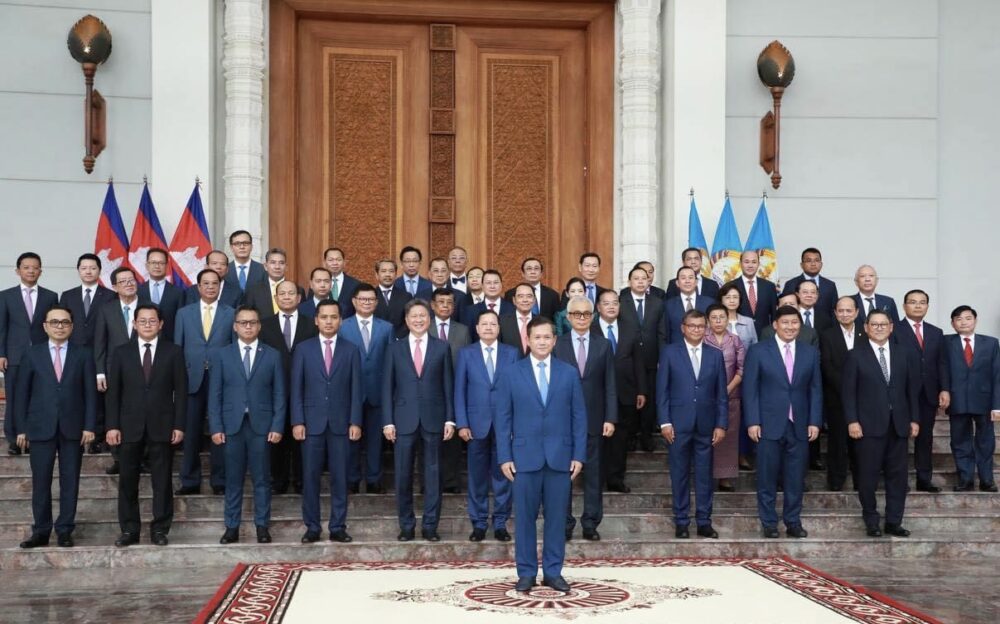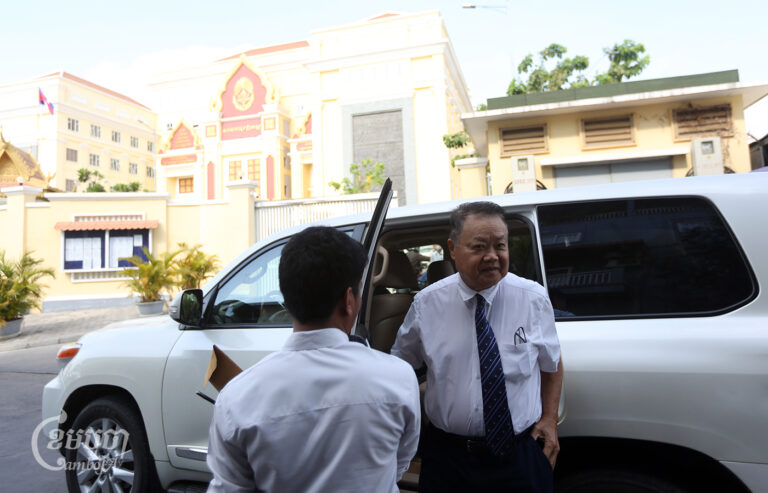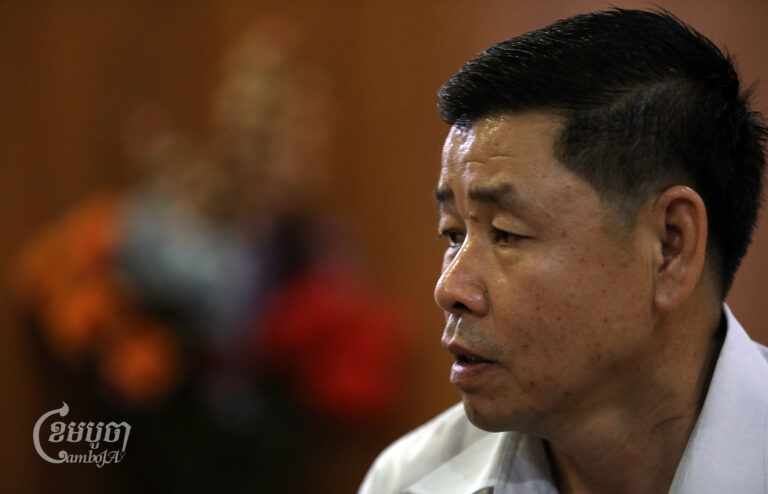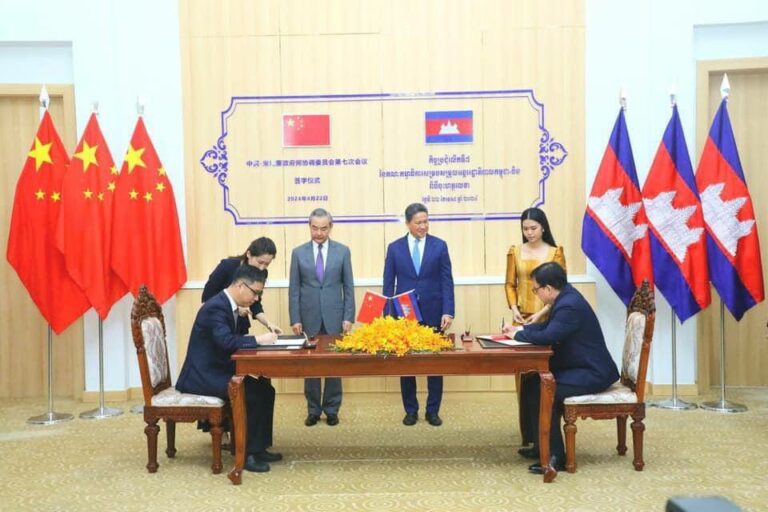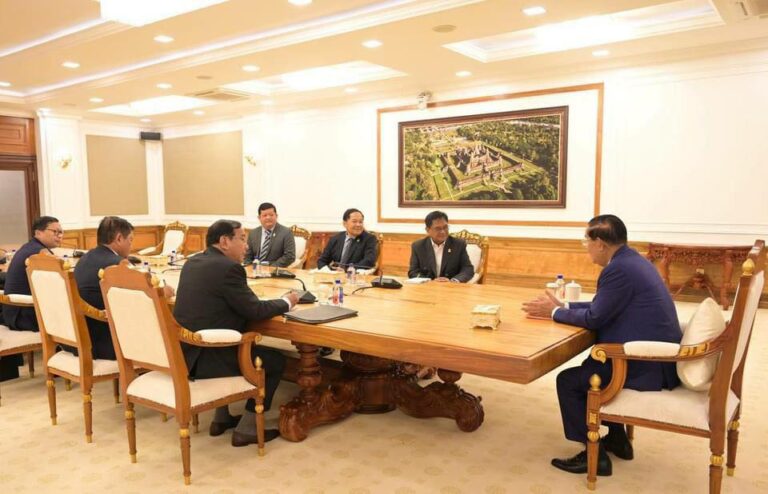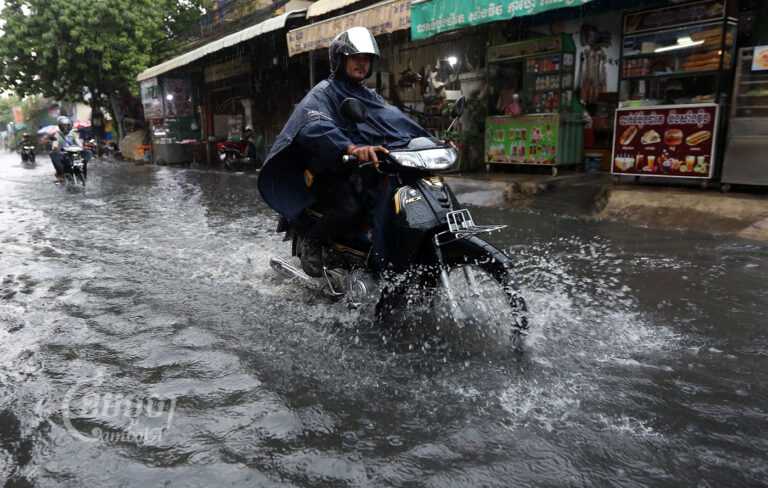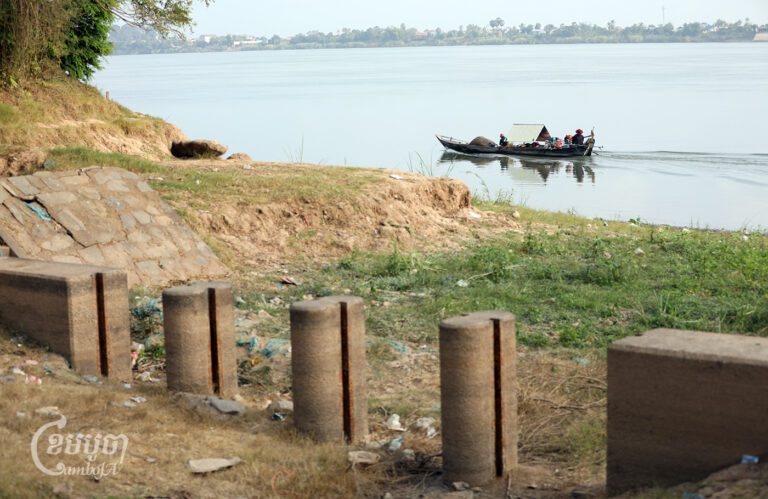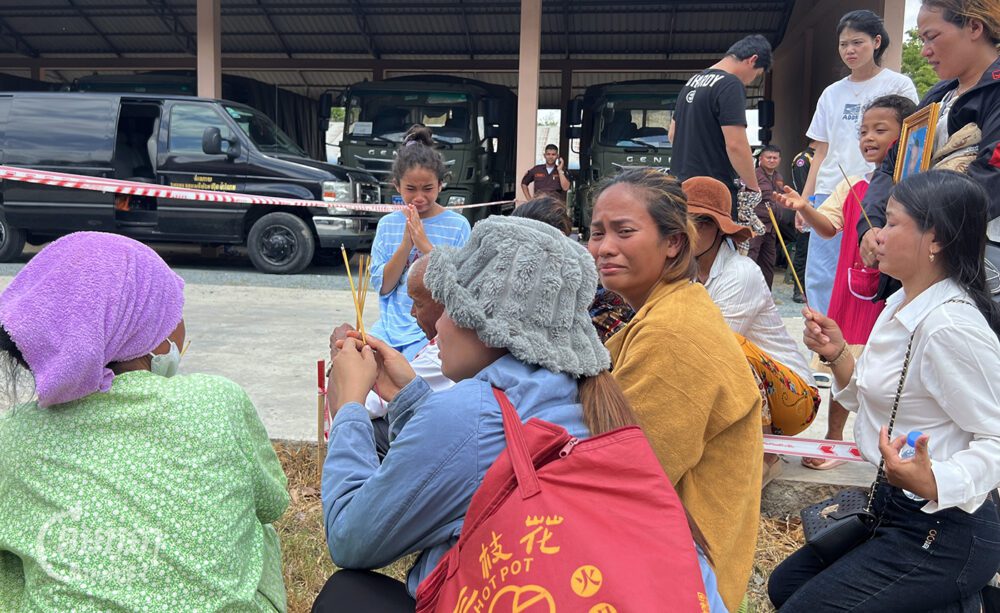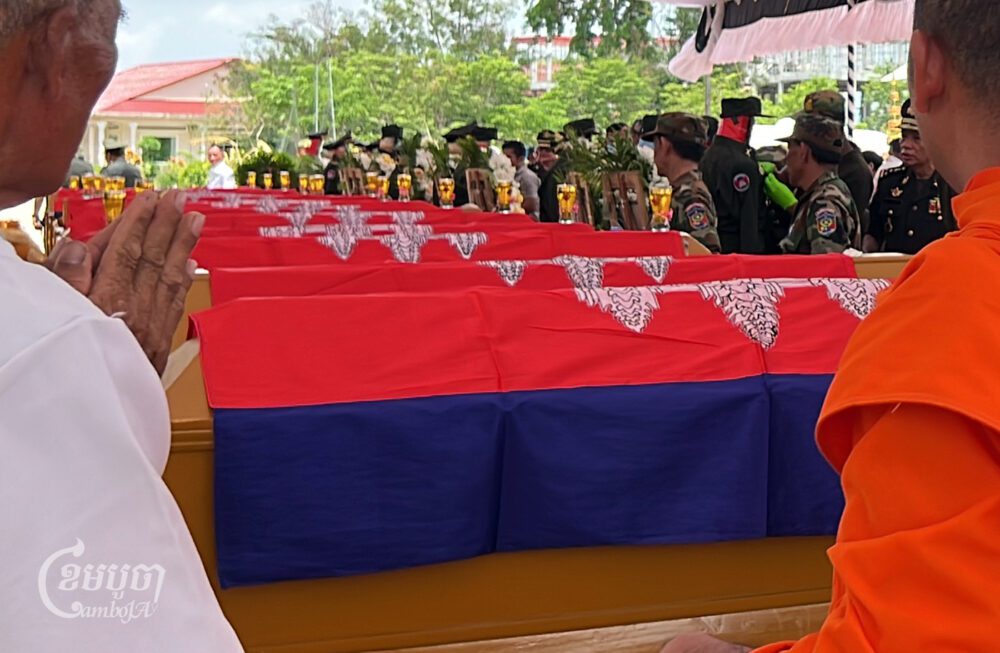Prime Minister Hun Sen and his successor Hun Manet met with members of the new cabinet on Thursday at the Cambodian People’s Party (CPP) headquarters, but the government has yet to officially release the names of new cabinet members and their positions.
After the meeting Hun Sen posted group photos on Facebook outside the headquarters building, including one of Hun Sen standing in front of his current cabinet. In another photo, Hun Manet stands in front of another group, which appears to mostly correspond with lists of new cabinet members leaked to media that have not been confirmed by officials.
The photo with Hun Manet included children of current cabinet members, including Tea Seiha, son of National Defense Minister Tea Banh, and Sar Sokha, son of Interior Minister Sar Kheng, as well as others from families of ruling elites.
“The most important factor of the Cambodian People’s Party in maintaining the victory over the past, the present, and in the future is the solidarity and internal unity within the party,” Hun Manet wrote in a Thursday Facebook post.
CamboJA was unable to confirm with government officials Friday that the photograph with Hun Manet included the future cabinet.
Agriculture Minister Dith Tina, who a leaked document says will continue in the position, referred questions about the cabinet to Council Minister spokesperson Phay Siphan.
Siphan said he was not at the Thursday meeting and referred questions to Environment Ministry Secretary of State Neth Pheaktra.
Pheaktra declined to comment on whether he would replace Khieu Kanharith as Information Minister, as listed on a leaked document.
“I do not know for certain. I am sorry,” said Posts and Telecommunications Minister Chea Vandeth when asked if the photo was of the new cabinet.
A leaked list states that he will continue in this position, which Vandeth would not confirm to CamboJA.
Ruling CPP spokesperson Sok Eysan declined to comment.
Labor Ministry Secretary of State Heng Sour, Environment Ministry Secretary of State Eang Sophalleth, Siem Reap Governor Tea Seiha, Justice Minister Keut Rith, Education Minister Hang Chuon Naron, and Public Work and Transportation Minister Sun Chanthol, who all appear in the photo with Hun Manet, did not respond to requests for comment.
In his post on Thursday, Hun Sen said all ministers in the new 7th mandate “must pay more attention to meeting with the people to know the well-being of the people, must pay attention to address security, public order, especially to increase economic growth and development in all sectors.”
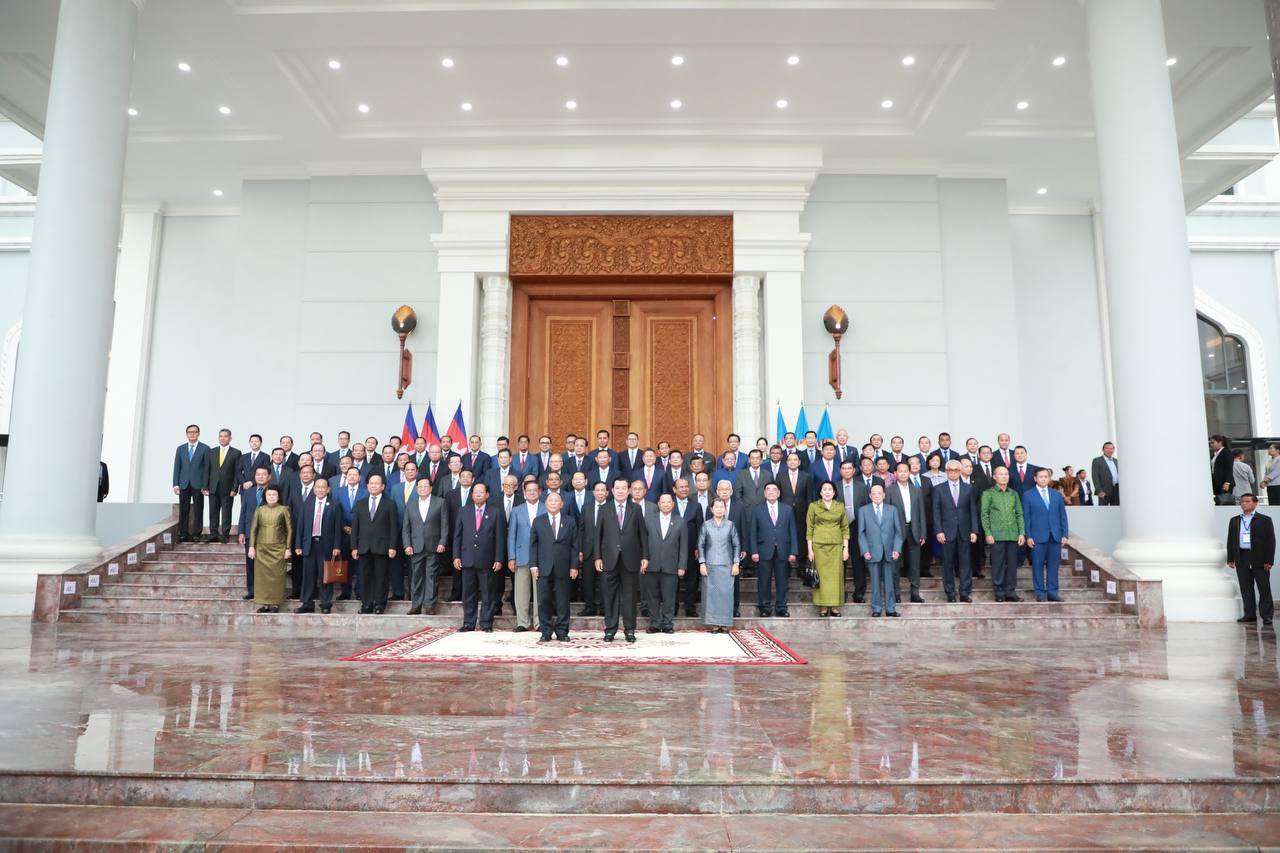
Hun Sen claimed that the new Royal Government of Cambodia, which will take over on August 22, has entirely changed with new leadership that will be led by Hun Manet, his son, as prime minister.
The National Assembly is scheduled to vote on August 21 to approve Hun Menet as prime minister and his new cabinet in order to form the government for a new five-year term.
Hun Sen announced via his Telegram channel on Wednesday night that Khuon Sudary will be the new president of the National Assembly, replacing Heng Samrin, while Cheam Yeap and Vong Sauth will be the first and second deputies of the National Assembly.
“Cambodian People’s Party does not have a habit of fighting for power. The position of the National Assembly president has been determined for Khuon Sudary,” Hun Sen said.
He also said that Supreme Court President Dith Monty had sent a letter to the king asking to retire because Monty was getting older and was not in good health. He added that some senators who are getting older, including Senate President Say Chhum and First Deputy Sim Ka and Second Deputy Tep Ngorn, have resigned.
King Norodom Sihamoni appointed Hun Manet as prime minister on August 7, after the National Election Committee announced official election results, in which the ruling CPP won 120 National Assembly seats. The royalist Funcinpec party received 5 seats.
Political analyst Em Sovannara said he is not optimistic to see a big change in the government as many of the presumed new cabinet members are younger members of already ruling elite families.
“We do not [expect] much change in the situation because as we have seen they [the new leaders] need to follow a line that their parents have prepared for them,” he said.
He said he does not think the government will reform or reduce corruption if the same elite families dominate, noting that some older members of the current government will continue to hold positions moving forward.
“I think that the new government has to find a solution regarding the international community’s pressure. If there are no measures taken to build relations, Cambodia will lose more benefits” Sovannara said, referring to the country’s economy.
Ny Sokha, president of the human rights group Adhoc, said he is concerned that human rights issues in the country will stay the same under the new government and civil society groups won’t be able to push new leaders to “restore democracy or fight corruption” in the country.
“Even though there is new blood, older leaders are still around and the older generation will be behind helping them,” Sokha said. “It might be that their power is not enough or they won’t dare to make full decisions. They will still receive influence from old leaders.”
On Saturday and Sunday, Chinese Foreign Minister Wang Yi will pay an official visit to Cambodia following the invitation of Cambodia Foreign Minister Prak Sokhonn, according to a Thursday press release.
During the visit, the Chinese minister will meet with the king, the prime minister and Hun Manet as well as other Cambodian officials to discuss issues related to the two country’s shared priorities.


